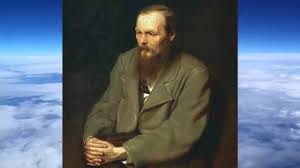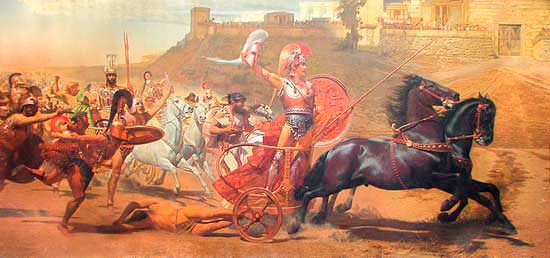Katerina Akhmakova in Dostoevsky’s “Teenager”
 To the unearthly friend of his, Sofia Andreevna, the main character of the “Teenager” Versilov faces a bright face. Dark, he turned to the earth of his love – Katerina Nikolaevna Akhmakova. Throughout the first two parts of the novel, the truth of this love is closed from us by a thick veil of gossip, slander, and vile suspicion. Versilov’s son, Arkady, heard that his father abroad had some kind of suspicious history with this woman and that they were shared by an old feud. He is prejudiced against Akhmakova and, having met her for the first time at Prince Sokolsky, sees him as an enemy. “She somehow raised her face, looked at me badly and. smiled cheekily. And yet its beauty strikes him. The author repeats the technique he used in “Idiot” to portray Nastasya Filippovna: the hero first sees a portrait of a beautiful woman, and then her own.
To the unearthly friend of his, Sofia Andreevna, the main character of the “Teenager” Versilov faces a bright face. Dark, he turned to the earth of his love – Katerina Nikolaevna Akhmakova. Throughout the first two parts of the novel, the truth of this love is closed from us by a thick veil of gossip, slander, and vile suspicion. Versilov’s son, Arkady, heard that his father abroad had some kind of suspicious history with this woman and that they were shared by an old feud. He is prejudiced against Akhmakova and, having met her for the first time at Prince Sokolsky, sees him as an enemy. “She somehow raised her face, looked at me badly and. smiled cheekily. And yet its beauty strikes him. The author repeats the technique he used in “Idiot” to portray Nastasya Filippovna: the hero first sees a portrait of a beautiful woman, and then her own.
“The side door opened, a teenager recalls, and that woman appeared. I already knew her face from the amazing portrait that hung in the prince’s office; I studied this portrait all this month. With her, I spent about three minutes in the office and didn’t take my eyes off her face for one second … But if I didn’t know the portrait and after these three minutes they asked me what was she? “I wouldn’t answer, because everything got clouded … I just remember some really beautiful woman out of these three minutes” …
This is how the “fatal” beauty Akhmakova is introduced. Beauty is a terrible force and its effect on the human soul is inexplicable and powerful; we have a premonition of the Versilov tragedy. Arkady’s enmity towards Akhmakova turns into affection and ends with passionate love. Unaware of his rivalry with his father, he guesses the character of Katerina Nikolaevna with a clairvoyant love. The one he considered a fatal beauty, a dangerous and depraved aristocrat, turns out to be an infinitely innocent and shy-chaste woman. Her secret is that she has no secret: she is life itself, incomprehensibly simple and clear. The teenager says to her, choking with excitement and delight:
“I can’t stand your smile anymore. Why did I imagine you to be formidable, magnificent and with snide secular words still in Moscow … The expression of your face is childish playfulness and endless innocence – that is! .. I saw you as well as blind. Your portrait does not look like you at all; your eyes are not dark, but light, and only from long eyelashes appear dark. You are full, you are of medium height, but you have dense fullness, light fullness of healthy rural pullet. Yes, and you have a very rustic face, the face of a country beauty, a round, ruddy, clear, bold, laughing … and shy face! Right, shy! Shy in Katerina Nikolaevna Akhmakova! Shy and chaste, I swear! More than chaste – childish! … You have a cheerful mind, but without any embellishment … I also love that a smile does not descend from you: this is my paradise! I also love your calm, your quietness. Your chest is high, your walk is light, you have an extraordinary beauty, and there is no pride! ”
The image of a mistress is contrasted to the image of the mother: the chaste and joyful beauty of the other is to the suffering suffering of one. The whole female world of Dostoevsky falls into these two sections: his heroines or the meek “sisters of mercy”, who can love only motherly (the most vivid image is Sonya Marmeladova), or mistresses that sparkle with the beauty and charm of youth. The first descend into the world with sacrificial love, the second torment and destroy their victims with the fire of eros. Nastasya Filippovna, Akhmakova, Grushenka – psychologically different – are united by their inherent erotic elements. Dostoevsky from his youth carried a vague longing for “living life.” Her light flashed before him for a second in ecstasy before an epileptic seizure. He knew her, but could not determine. Versilov expresses his “vision of the incomprehensible mind.” Sergei Sokolsky mockingly asks him: “And what is this living life in your opinion?” “I don’t know, Prince,” he answers. “I only know that it must be something terribly simple, the most trivial and darting eyes, daily and every minute and so simple that we cannot believe that it was so simple and naturally passed by for thousands of years, not noticing and not recognizing. ”
After the meeting with Akhmakova, Arkady trustfully tells his father about his love. Suddenly, his voice trembles, and he enthusiastically announces: “Listen, Andrei Petrovich, listen: this woman is what you just told this prince about“ living life ”- remember? Well, it was with such a look that you met the ideal woman, and perfectly recognized “all vices.”
The mystery of the dark face of Versilov is revealed: a Russian European, a spiritual wanderer, vaguely knows about “living life” and languishes after it. And the “living life” itself is in its Russian beauty, simple and ingenuous. But his soul is already poisoned by doubt, his heart is corrupted by spiritual wanderings and he does not see, does not understand, does not believe in the “perfection” that has appeared before him. Akhmakova evokes evil passion in him and instead of salvation brings death to him.


